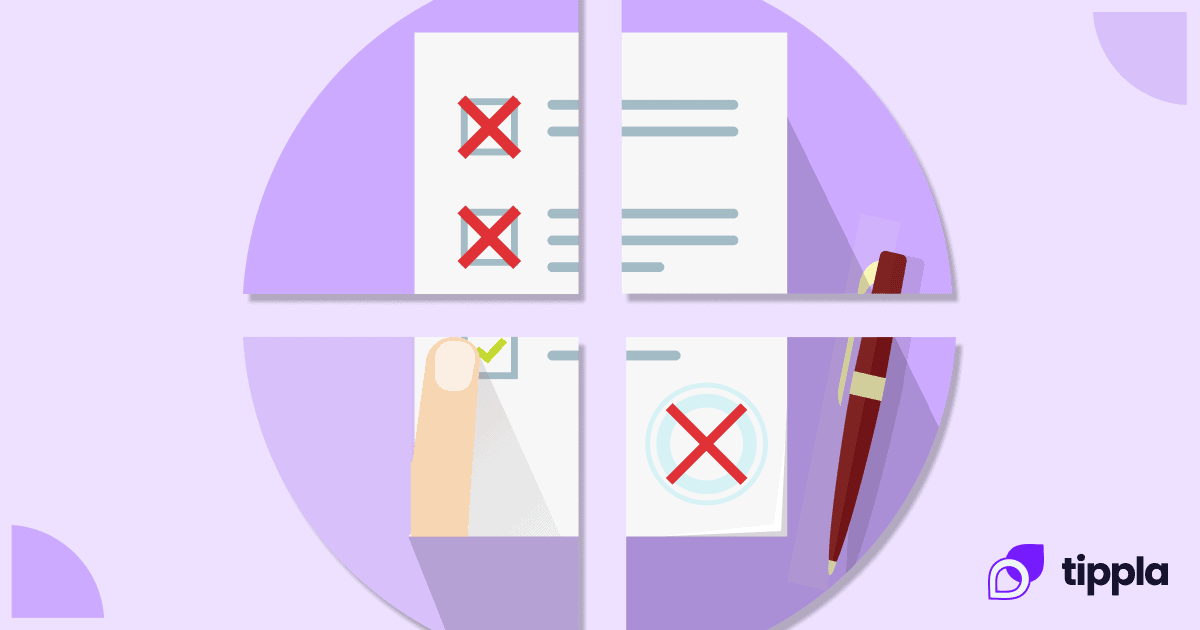Published in July 28, 2021
What’s the Most Efficient Way of Building Your Credit Score?

Building good credit: Where to start
Good credit can be an invaluable asset if you’re on the hunt for finance. The ability to borrow money opens up many opportunities, and by building good credit score, you will be able to borrow larger amounts and gain access to lower interest rates.
On the flip side, credit debt – whether it’s through credit cards, other loans, etc. – can quickly escalate out of control. The pitfalls of abusing credit can lead to long-term financial disaster if you’re not careful.
It’s a lot easier to maintain a good credit score than it is to repair one. So, start as you mean to go on and then maintain that excellent credit rating. Not sure how you can possibly do that? No problem! We’ve covered everything you possibly need to know here in this article.
Do I have a good or bad credit score?
Before we get into it, how do you even know if you have good credit or not? In order to understand how good or bad your credit score is, it helps to understand how credit scores are calculated here in Australia.
Basically, scores range from 0-1,200 depending on the agency, with the highest number being the very best. A score under 549 is generally considered “bad” or in serious need of work. If you fall into this category, don’t fret — there are things you can do to improve that score and be on your way to financial freedom in no time.
Why do I have a poor score?
Figuring this out can be tricky, as your credit score depends on a number of factors. To figure out what things are currently wreaking havoc on your score, look at your credit accounts and how much debt you’re currently managing. Are you over-utilising the credit that you have? Using significantly more than 30% of your available credit is not wise. Bringing down that credit-to-debt utilisation will make a huge difference in your score whether you realise it or not.
For sure, overdue bills make an impact, especially anything overdue by more than 60 days that’s over $150. Applying for multiple lines of new credit in a short period can also appear desperate to creditors and will cause problems. It’s important to make sure that you are making at least minimum payments on all of your outstanding debt. Any progress is better than no progress at all.
Simple steps to improve your credit score
Taking a good look at the way you’ve been doing things means taking responsibility for any of the mistakes you’ve made. It also means you may find you’ve been doing some things correctly.
For one – having several kinds of credit is always a good thing. In repairing your credit, you should always consider the types of credit you already have. If you have a car loan, a home loan, and a few credit card balances, for example, this shows creditors diversity on your part. Having a few older accounts is also very good, so don’t close inactive accounts where possible.
Ultimately, credit is not a simple thing, and repairing it takes time. The good news is that there is hope, here are some steps you can take to get started:
1. Pay off your current credit debts
The first thing you can do to raise your credit score is to pay off current credit balances before acquiring new debt.
In particular, we’re talking about credit cards here. The worst way to pay back a credit card debt is by paying the minimum payment each month. This can double, triple, or even quadruple the amount that you have to pay back. The interest on your balance will grow over time and you’ll get almost nowhere in repaying the debt. This is the biggest trap people fall into by using credit cards too often for unnecessary purchases.
If you have a current overdue balance on a credit card that you can pay down, pay it as quickly as you can before applying for new debt.
2. Paying on time
Faithfully paying your monthly balance on your credit debts is the best way to secure a good credit score. When a payment or two is missed or late payments occur, your credit score suffers badly.
It is especially important never to let a payment be overdue for more than 60 days if the payment is for more than $150.
Be prepared to make your payments a few days before the actual due date. That way, even if there is a delay in transferring funds, like an internet problem or some unforeseen circumstance, it’s much less likely to cause a problem.
It is much safer and much cheaper overall to remain completely within the due date range by paying a few days early, routinely, so your credit score never suffers.
3. Finding the best interest rate
In terms of credit cards, in Australia applying for a lower interest debt so that you can switch your balance over will not affect your credit score. It’s sound financial practice to utilise a credit card that offers a very low-interest rate for a fixed period.
But do so with care, and do not simply apply for new cards that are not necessary. Credit cards can be easily over-used, and before you know it you may inadvertently rack up thousands of dollars in “small balances” on various cards, and you may get in over your head very quickly.
So, it’s super important to be aware of the pitfalls and dangers of applying for too many cards. A better strategy is to maintain one or two credit cards and keep the balances paid off and paid on time, every month.
4. Credit can be diversified to your advantage
If you carry a mortgage, and the payments are affordable, that is a good foundation for building credit. Be careful when diversifying into other forms of credit and keep your debt-to-credit ratio within an acceptable range.
If you build a good working relationship with your primary financial institution, your advisor can help structure how your credit is laid out and help to plan repayments on an affordable schedule.
Ensuring your payments are always on time and making more than the minimum required payments will guarantee your credit score works to your advantage and not against you.
How long does it take to repair your credit?
Australian credit reporting agencies
A good place to start with credit repair is by getting a copy of your credit report. In Australia, the main credit reporting agencies are:
You can request a copy of your report each year from any of these agencies. There is a good chance that there will be a mistake on your report that you can report to the creditor, to the credit reporting body, or the Privacy Commissioner if needed. So make sure all your information is correct – there’s nothing worse than paying the price for something that’s not even true!
Also, ensure that you are paying all of your bills on time, and try not to take on any additional debt at all. Begin by paying off the highest interest cards and bills and, if you are able to, switch to lower interest cards and services.
By lowering the total amount of debt you owe, you are well on your way to a better score. Even the smallest things like setting up automatic bill payments can help you to catch up and keep you out of debt in a relatively short period.
Expect improvements in 12-18 months
Depending on your initial score, you could start to see improvement in as little as 12-18 months if you are using your credit wisely. This means you should definitely keep track of your monthly habits and address the problems you have using credit.
It is always a wise idea to add positive credit to your reports every month by paying on time and keeping your utilisation down. The lower your score is, the longer it will take to improve. It may take several years to improve a very low score. So, don’t waste time!
Bring a sense of urgency and energy to your mission to improve your score, by thinking long term. A good credit score is always a product of responsible and intentional habits.
Establishing a credit score from scratch
The best strategy to begin establishing a good credit score is to start with one credit card or a small loan and build up a history of regular, on-time payments.
If your first credit card has a $1,000 limit, don’t use the entire amount. Keep the balance low. Pay off the first $500 before you rack up another $500. This way, your credit score will show positive movement because you have proven you are trustworthy. That means a lot when applying for other credit cards, lines of credit, or even a mortgage down the road.
Be cautious when your bank offers to raise your credit limit because you have proven yourself a good customer. Keep your credit card balances as low as possible, even when you accept a higher limit.
How do credit changes affect a score?
Australia’s credit reporting system has recently seen an overhaul, with the brunt of the changes only just coming into effect. These changes mean that almost everyone’s credit score will have recently changed.
Before 2014, credit reporting institutions only shared negative details about your financial history. This included things like bankruptcies, defaults, late repayments, and credit card applications were shared between institutions.
Positive credit reporting could help in building good credit scores
Since 2014, the reporting of positive credit events has been in practice. As it wasn’t a legal requirement, most big banks didn’t report positive credit events. Now, this is being enforced, so all credit reporting institutions will also have information on the positive credit transactions you have made. Good, regular payment histories, the types of credit you have, and repayments made are all being shared. This should mean that your credit score will more accurately reflect your relationship with credit.
Some people will see their credit rating improve automatically as the increased amount of data demonstrates that they are good credit risks. In turn, they will be offered better interest rates.
Other people may see their credit rating decline because of the change. However, there is no doubt that better information being shared about negative credit transactions will lead to more accurate credit scores.
As more information will be shared, there will be more detail on your credit report. If you notice an error in your credit report, it pays to get the error fixed as soon as possible.
Building Good Credit: How to report and fix an error
Your credit report contains a lot of information about you and your financial status. It pays to ensure that the information within it is correct. The better your credit score, the more credit you can get and the lower interest rates will be. Follow the steps below and within a matter of months your credit score could have improved dramatically.
Option 1: Report it
If you notice an error in the credit report from any of the three credit reporting agencies, the first thing to do is to contact the credit reporting agency directly. They will investigate whether there is an error on your credit report by discussing it with the relevant institution. If an error is confirmed, your credit report will be corrected and information will be updated free of charge.
Option 2: Talk with your lender
If the investigation finds that there is no error in your report, the next step will be to talk directly with the credit provider who reported the error. Explain to them the listing is incorrect. If they still dispute the issue then they must provide you with information on why the credit report is accurate. They must also supply you with evidence supporting this claim.
Option 3: Independent dispute resolution
If you still disagree, you can dispute the credit report through an independent dispute resolution. Who to turn to depends on the type of credit being disputed. For example, the Financial Ombudsman Authority typically handles issues with credit cards and loans, whereas the Energy and Water Ombudsman will handle issues arising from utility bills.
Option 4: Office of the Australian Information Commissioner
The final place that you can turn to is the Office of the Australian Information Commissioner (OAIC). You must have previously attempted to resolve the matter through the above steps before the OIAC will hear your complaint.
Get on top of your credit, with Tippla
Do you want to check, monitor and improve your credit score? What if we said it didn’t have to cost you anything? That’s what you get when you sign up to Tippla!
Sign up to Tippla and let us help you reach your financial goals with our smart monitoring and insights. We compare your score from multiple reporting agencies to give you the best understanding of your credit.
For smarter credit checks and tips for building a good credit history, choose Tippla.
While we at Tippla will always do our best to provide you with the information you need to financially thrive, it’s important to note that we’re not debt counsellors, nor do we provide financial advice. Be sure to speak to your financial services professional before making any decisions.
Related articles

How Long Does Bankruptcy Stay On Credit Report?
29/07/2021
There are a number of reasons why someone might...

What Do Lenders See When They Look At My Credit Report?
26/07/2021
If you’re wondering what lenders see when they look...

No Credit Score? How to Build a Credit History From Scratch
18/07/2023
No credit history? No problem! You can build a...

Checking accounts vs. Savings accounts
28/07/2021
There are a lot of similarities between checking and...
Subscribe to our newsletter
Stay up to date with Tippla's financial blog